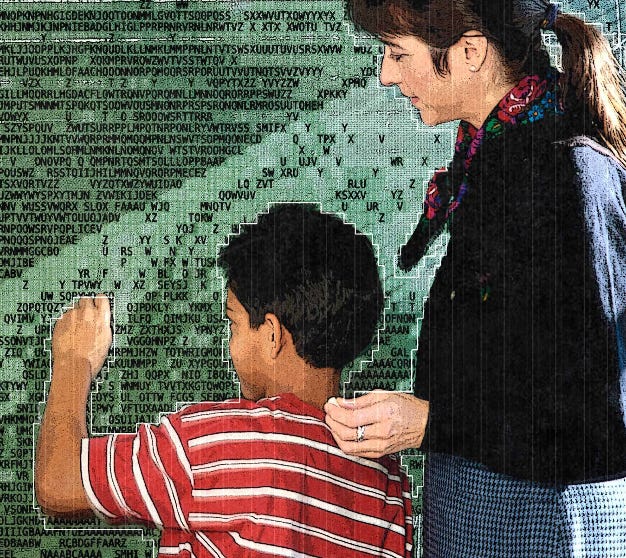Nate Fairchild had just instructed his eighth grade students to write a summary of a disturbing passage from Elie Wiesel’s Holocaust memoir Night when he dropped a surprise: He’d customized a chatbot to help them by masquerading as the Nobel Prize-winning writer and answering their questions. “Is that gonna get weird?” Fairchild asked, then answered his own question. “I don’t know, maybe! If it does get weird, let me know.”
If the students in his literature class found the prospect of chatting with a long-dead Holocaust survivor’s synthetic doppelgänger strange, they didn’t say so. They were accustomed to this. They’d been experimenting with artificial intelligence for months in Fairchild’s classroom in rural Evans, Colorado, using a product called MagicSchool, which is built on large language models from big companies such as OpenAI Inc. and Alphabet Inc.’s Google. They’d mostly turned to it for feedback on their writing or to summarize complex texts, but sometimes more offbeat exercises came up, like this one.
Read more | BLOOMBERG

